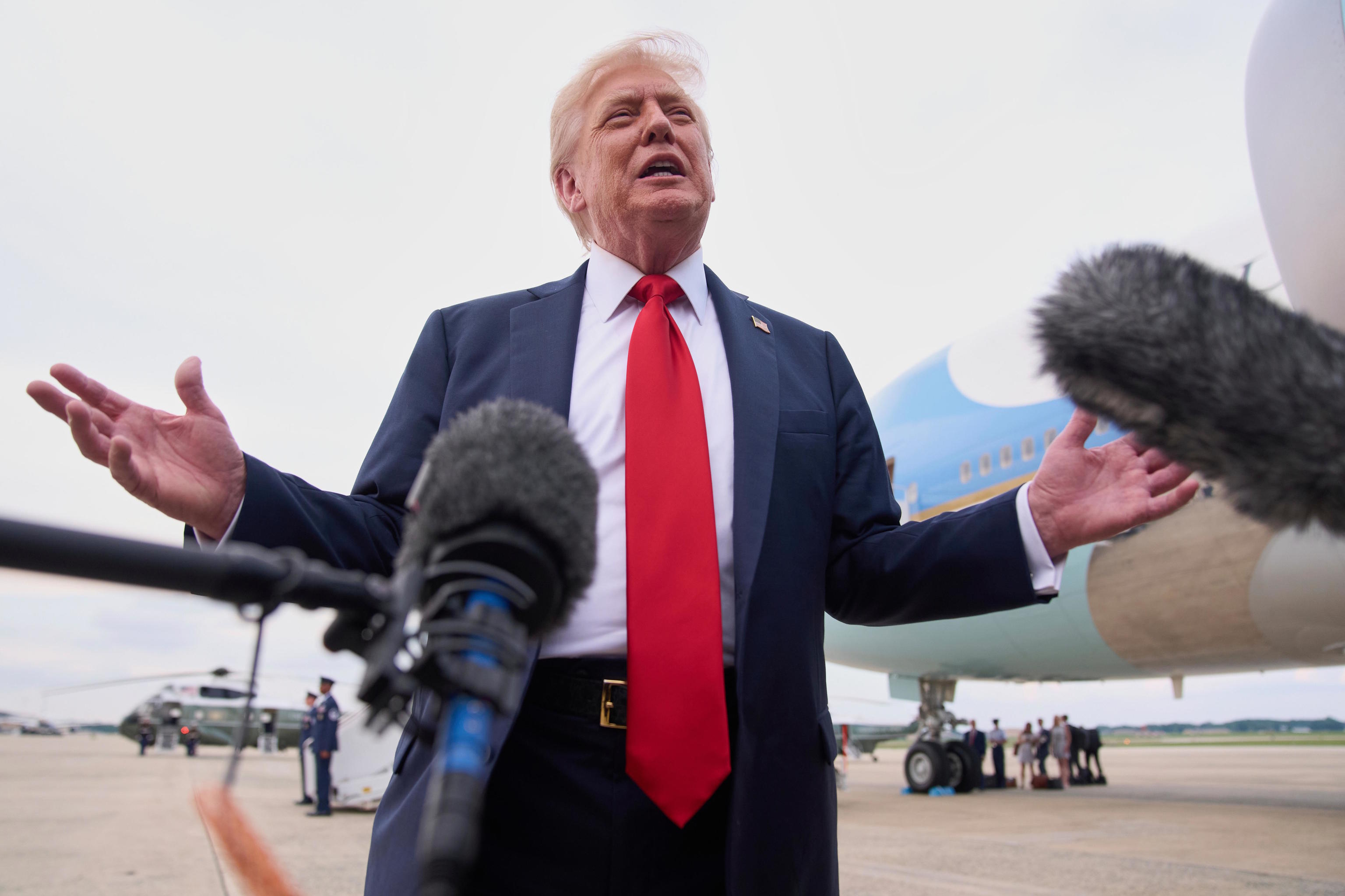If one looks at the global trade statistics published by the UN on Monday, they will come to the conclusion that they live in another galaxy. Despite Trump's tariff mania, global trade grew by 1.5% in the first quarter and 2% in the second, despite the US launching its trade war on April 2. Although the figure is somewhat inflated because half of the increase is due to rising prices, these data suggest that the universal US trade war has only changed the direction of international trade flows to date, but not the volume or imbalances. The US trade deficit that obsesses Trump decreased by 17.4% in April and 28.9% in May, partly due to tariffs but also due to the decline in economic activity in that country precisely because of its president's protectionism. In any case, the possibility of the US having a trade surplus remains unattainable.
The European Union is increasingly fond of trading with dictatorships, according to Frankfurt
Against the pragmatism of Donald Trump, more akin to Al Capone than a liberal democracy, what better example than the EU, whose trade principles include ensuring that its partners respect "social justice" and "respect for human rights"? The problem is that, as demonstrated by the European Central Bank, these principles reflect hypocrisy. A recent analysis by two economists from the institution based in Frankfurt shows that, in the last 25 years - more or less since the introduction of the euro - the EU has gradually opted to trade with less and less democratic countries. It's not that democracy is in retreat in the world (which it is), but rather that Europeans have leaned towards having dealings with non-democratic countries. This is partly due to China's integration into global trade in 2001, but also a political choice. Moral lessons to Trump, just what is needed.
Putin reacts with arrests to fears of a banking crisis in Russia
In Spain, Santos Cerdán resigns and goes to jail. In Russia, the Minister of Transport, Roman Starovoit, is dismissed and shoots himself, and his collaborator Andrei Korneichuk dies of sorrow upon hearing it. The suspicious link these deaths to Vladimir Putin's arrests of heavyweight oligarchs - such as mining magnate Konstantin Strukov and agribusiness tycoon Vadim Moshkovich - who had so far emerged unscathed from the purges following the invasion of Ukraine. Others, with even more twisted minds, relate everything to Russia's weariness from the war. Companies cannot pay their loans, growth has declined, inflation has increased, and there is a labor shortage. All this points to an impending crisis in the Russian banking sector, especially if the EU imposes more sanctions (which is possible) and the US (which is not). Of course, Russia always has the financial support of China, which is an invaluable help.
Are Elon Musk's electric cars at Tesla starting to bore him?
The world's richest entrepreneur seems to have lost interest in having Tesla make electric cars and now wants to redirect it towards robots - in which he has no experience - and autonomous vehicles, where he lags behind Chinese companies Baidu Apollo, AutoX (Alibaba), the Japanese Pony.ai (Toyota), and the American Waymo (Google). But what he is most passionate about is SpaceX, the spaceflight company, which has doubled its valuation in just one year to $400 billion. This, along with his forays into politics and his desire to stir things up at X (formerly Twitter), leaves him with little time except, obviously, for having children through artificial insemination, of which he reportedly has several dozen according to the Wall Street Journal. The question is that a Tesla crash would drag down Musk's other companies, perhaps including SpaceX. Having giant companies as if they were hobbies comes with certain responsibilities.
Chile and other countries tremble at the US threats to impose tariffs on copper
Copper may not have the glamour of oil or rare earth minerals. But it may be as important, if not more, for the 21st-century economy because without it, there is no digitalization, electrification, or energy transition. That's why Donald Trump's threat to impose 50% tariffs on that mineral on August 1 has sent a warning signal to the global economy. And more so to countries like Chile, which obtains between 8% and 11% of its total income from exports of that mineral to the United States. Furthermore, these figures only account for raw copper, concentrate, oxides, slag, and ash, but not manufactured products. The $35.7 million that Canada exported to the US in copper in 2023 translates into $2 billion when refined copper and copper in cables, pipes, etc., are added. To complicate matters, the US only produces 50% of the copper it uses, and achieving self-sufficiency would take decades.
The gigantic, opaque, and oligarchic market of 'private capital'
A few years ago, it would have been rare for companies like SpaceX and OpenAI, which are not listed on the stock exchange but are valued at $429.852 and $354.620 billion respectively, according to Yahoo Finance. However, today, Elon Musk, Founders Found, Fidelity, Google Ventures, and the other owners of SpaceX are in no hurry to cash out. The reason is that there is a lot of money outside the stock market, in the hands of US universities, sovereign funds, insurers, private equity and venture capital funds, hedge funds, and high net worth individuals. All of them form a fabulous pool of investments that could be managing ¤85 trillion in assets, almost as much as the entire GDP of the Earth. With this immense liquidity, SpaceX, OpenAI, or Block Inc. do not need to finance themselves on the stock market, which frees them from dealing with regulators or minority shareholders. They just need to pick up the phone and call a fund made up of millionaires.
